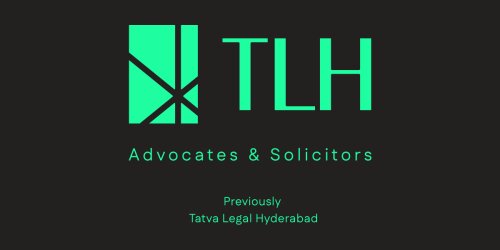Best Telecommunications and Broadcast Lawyers in Hyderabad
Share your needs with us, get contacted by law firms.
Free. Takes 2 min.
List of the best lawyers in Hyderabad, India
About Telecommunications and Broadcast Law in Hyderabad, India
Telecommunications and broadcast law in Hyderabad, India, is a critical component of the legal framework that oversees the establishment, expansion, and regulation of communication services and broadcasting media. As a flourishing IT and tech hub, Hyderabad is at the forefront of adopting new communication technologies and innovative broadcasting methods. This legal domain covers a spectrum of regulations, including licensing procedures, spectrum management, data privacy, consumer rights, and competitive practices. The Telecommunications Regulatory Authority of India (TRAI), along with local and national government bodies, plays a pivotal role in enforcing these laws to ensure fair practices, protect consumers, and promote technological advancements in the region.
Why You May Need a Lawyer
There are several scenarios where legal advice in telecommunications and broadcast may be necessary:
- Disputes regarding licensing or permits for launching telecommunications or broadcasting services.
- Compliance matters concerning data protection and privacy laws affecting telecom entities.
- Resolving consumer complaints related to service quality or billing issues.
- Guidance on mergers, acquisitions, or partnerships in the telecommunications or broadcasting sector.
- Navigating legal challenges around violation of intellectual property rights or broadcast content regulations.
- Representation in litigation or negotiation with regulatory authorities and other stakeholders.
Local Laws Overview
Key aspects of local laws impacting telecommunications and broadcast in Hyderabad include:
- Licensing and Compliance: Operators must obtain proper licenses and adhere to regulatory guidelines set by TRAI and the Department of Telecommunications (DoT).
- Data Protection: Nationwide laws such as the Information Technology Act and its amendments influence how telecommunications companies manage data privacy and customer information.
- Content Regulation: Broadcast content is subject to guidelines defined by bodies like the Ministry of Information and Broadcasting.
- Consumer Rights: The Consumer Protection Act governs the resolution of disputes regarding service quality, billing, and other issues affecting consumers.
- Spectrum Allocation: The efficient allocation and use of spectrum are closely monitored and regulated by TRAI to ensure national and regional communication efficiency.
Frequently Asked Questions
What is the role of TRAI in telecommunications and broadcast?
TRAI regulates telecom services, including fixation/revision of tariffs, ensures compliance with standards, and promotes fair competition to enhance consumer interests.
How can I resolve a billing dispute with my telecom provider?
You can file a complaint with your service provider. If unsatisfied with the resolution, you may escalate the issue to TRAI.
What are the consequences of operating without a proper license?
Operating without a proper license can lead to penalties, suspension of operations, and legal proceedings against the entity involved.
How are broadcasting content regulations enforced?
Content regulations are enforced by the Ministry of Information and Broadcasting, which can take actions like suspending licenses or imposing fines for non-compliance.
What should I do if I encounter a privacy issue with my telecom provider?
Report the issue to the telecom provider and, if unresolved, escalate it to TRAI or seek legal counsel for further action.
Is there a difference between telecom and broadcast licenses?
Yes, telecom licenses are primarily for communication services, while broadcast licenses pertain to content transmission via radio or television.
Can foreign entities invest in Hyderabad's telecom sector?
Yes, foreign investments are allowed under specific regulations which are subject to Foreign Direct Investment (FDI) policy norms set by the government.
How can I apply for a telecommunications license in Hyderabad?
Applications can be made through the Department of Telecommunications, following guidelines and criteria outlined for licensing procedures.
What laws protect my rights as a telecom consumer?
Laws like the Consumer Protection Act and TRAI regulations offer protections against unfair trade practices and ensure service quality.
How are disputes between telecom companies resolved?
Disputes are usually resolved through negotiation or legal proceedings, with TRAI or appellate tribunals providing resolution frameworks.
Additional Resources
For further assistance and information, consider reaching out to the following resources:
- Telecommunications Regulatory Authority of India (TRAI): The primary regulatory body overseeing telecom operations.
- Department of Telecommunications (DoT): Responsible for formulating legislation and policies in telecommunications.
- Ministry of Information and Broadcasting: Manages broadcasting regulations and content guidelines.
- Legal Associations in Hyderabad: Various law firms and legal consultants specializing in telecommunications and broadcast law.
Next Steps
If you require legal assistance in telecommunications and broadcast, consider the following steps:
- Identify the specific legal issue or concern you are facing.
- Gather all relevant documents, contracts, or communications related to your case.
- Consult with a legal expert who specializes in telecommunications and broadcast law to explore your options.
- Determine whether negotiation, mediation, or litigation is the best course of action, with professional guidance.
- Stay informed about changes in relevant laws and regulations to ensure ongoing compliance and protection of your rights.
Lawzana helps you find the best lawyers and law firms in Hyderabad through a curated and pre-screened list of qualified legal professionals. Our platform offers rankings and detailed profiles of attorneys and law firms, allowing you to compare based on practice areas, including Telecommunications and Broadcast, experience, and client feedback.
Each profile includes a description of the firm's areas of practice, client reviews, team members and partners, year of establishment, spoken languages, office locations, contact information, social media presence, and any published articles or resources. Most firms on our platform speak English and are experienced in both local and international legal matters.
Get a quote from top-rated law firms in Hyderabad, India — quickly, securely, and without unnecessary hassle.
Disclaimer:
The information provided on this page is for general informational purposes only and does not constitute legal advice. While we strive to ensure the accuracy and relevance of the content, legal information may change over time, and interpretations of the law can vary. You should always consult with a qualified legal professional for advice specific to your situation.
We disclaim all liability for actions taken or not taken based on the content of this page. If you believe any information is incorrect or outdated, please contact us, and we will review and update it where appropriate.










